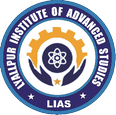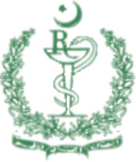Lyallpur Institute of Advanced Studies (LIAS) is situated at prime location of main Satiana Road Faislabad. It covers an are a of forty kanals of land having provision for future expansion. Infrastructure provided in its campus is of the standard prescribed for any institution of higher learning in Pakistan.










Monday : 9:00 - 4:00
Tuesday : 9:00 - 4:00
Wednesday : 9:00 - 4:00
Thursday : 9:00 - 4:00
Friday : 9:00 - 4:00
Saturday - Sunday : Closed
Lyallpur Institute of Advanced Studies
(LIAS)
Phone:
041 8792050
041 8792052
041 5392640
Cell Phone:
0332-6690257



























 Reserve Your Seat
LMS Login
Reserve Your Seat
LMS Login

 News & Updates
Downloads
News & Updates
Downloads


Registration & No Objection Certificate
Lyallpur Institute of Advance Studies offers affiliated & NOC / Recognized degree programs





Pharmacy education was started in the Province of Punjab of sub-continent in 1944 in the Department of Pharmacology, King Edward Medical College, Lahore, the oldest institution of medical sciences in the country. This education led to the Bachelor’s degree in Pharmacy. The course of study was spreaded over three years. After the creation of Pakistan, the Department of Pharmacy was re-established as an independent Department in the University of the Punjab, Allama Iqbal Campus, Lahore. A revolutionary step was taken by the University authorities to upgrade the Department of Pharmacy to the level of Faculty in 1979 and three years B.Pharmacy course was converted to four years graduation course to meet the demand of the profession. Later on, in order to meet the international requirements, B. Pharmacy (4 years) program was converted to Doctor of Pharmacy 5 years program in 2003.
The Faculty of Pharmacy was recognized and approved by the Pharmacy Council of Pakistan under Pharmacy Act 1967 and other Health Caring Organization of Pakistan. The Department of Pharmacy has been converted into Punjab University College of Pharmacy (PUCP) on 11th March 2004.
As per directions of Pakistan Pharmacy Council, the Punjab University College of Pharmacy is divided into five disciplines, namely: Pharmaceutics, Pharmaceutical Chemistry, Pharmacology, Pharmacognosy and Pharmacy Practice
Punjab University College of Pharmacy is one of the oldest institutions in Pakistan. Mission of the college is to improve the quality of pharmacy education in Pakistan through excellent and updated courses conducted within an educative and friendly researched based innovative environment.
Pharmacy Council of Pakistan is a professional body responsible for the registration of pharmacists and promotion of pharmacy education in the country. The Pharmacy Council Pakistan (PCP) is the regulator established in terms of the Pharmacy Act, 1967 to regulate pharmacists, pharmacy support personnel and pharmacy premises in Pakistan. Our mandate is to protect, promote and maintain the health, safety and well being of patients and the public who use pharmaceutical services in Pakistan.
The council has also been working as a regulator for pharmacy education and profession in Pakistan.




University Law College, University of the Punjab, is the finest and oldest seat of legal learning in the country. The University Law College is known as the birth place of the finest legal minds in the subcontinent and has been the epitome of judicial heritage in Pakistan since its inception. A number of eminent bureaucrats, politicians, lawyers and judges of higher and superior judiciary are graduates of the college and continue to serve the country to the best of their abilities. Other than training young legal minds, the college focuses on personality development and grooming of students into responsible citizens.
Law College was established in 1868, fourteen years before the University of the Punjab and has a rich history and culture. It later became one of the constituent Colleges of the University of the Punjab. Law classes were initiated by Anjuman-i-Punjab in 1868 and were taken over by the College in 1870. Initially, the degree was spanned over two years. In 1873 entry test was introduced for admission purposes in the program and in the same year Chief Court allowed the college to hold pleadership Examination. In 1887, passing of intermediate examination was made a prerequisite for admission in the law program. Later that year, three-fourth attendance was made mandatory for appearing in the examination. In 1890, Government of India empowered the college to confer LL.B. and LL.D. degrees. In order to appear in the LL.B. examination, it was necessary for the aspiring candidates to have graduated in Arts and to have passed the intermediate or the Licentiate in the Law examination.
 PU Affliation Link
PU Affliation Link
PCP Affliation Link
PU Affliation Link
PU Affliation Link
PCP Affliation Link






























 Reserve Your Seat
LMS Login
Reserve Your Seat
LMS Login

 News & Updates
Downloads
News & Updates
Downloads











 PU Affliation Link
PU Affliation Link
PCP Affliation Link
PU Affliation Link
PU Affliation Link
PCP Affliation Link